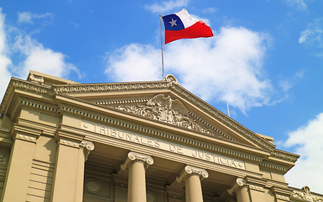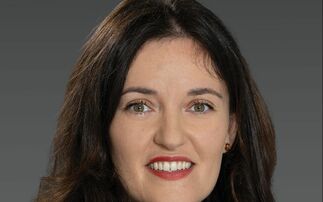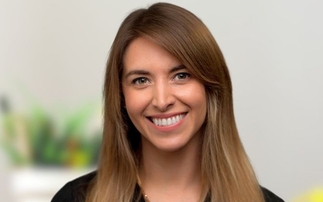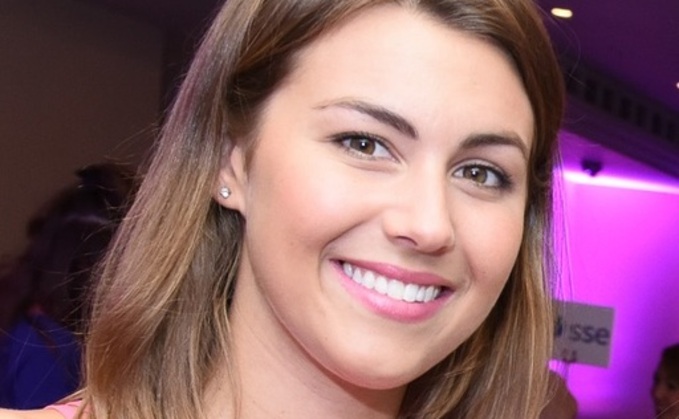
Credit: B Lab UK
B Lab UK's impact manager discusses finding inspiration from the sustainable collective's members and the importance of 'disrupting the system' to generate alternative solutions
Debbie Thackray is B Lab UK's impact manager and is responsible for ensuring B Corps continue to improve their impact over time and create opportunities for certified companies in different industries and impact areas to connect, support, and learn from one another.
B Lab's standards are at the heart of the global B Corp movement which spans over 8,000 firms across 95 countries and 162 industries that collectively employ more than 700,000 workers. The standards establish social, environmental, and governance best practices for businesses and are the basis for companies to formally commit to prioritising environmental and social performance alongside the pursuit of financial profits.
BusinessGreen Intelligence: What was your first job in sustainability?
Debbie Thackray: My first job in sustainability was working for a family-owned business called Pentland Brands in their CSR Team. I joined the company as a graduate focused on operational excellence and continuous improvement, following which I was given the opportunity to work for one of the owners, Andy Rubin. Shadowing a business leader at the beginning of my career, who continually amplified and advocated for the importance of ethical and sustainable practices, helped me understand how I could build a career that not only aligned with my own values, but also afforded me the opportunity to contribute towards positive progress for both society and the planet. I highly recommend reading their 2022 Positive Business Report.
What qualifications or experience did you have before starting in sustainability?
I have master's degrees in both industrial systems manufacturing and management, and corporate responsibility and sustainability. This knowledge I have found to be critical when trying to navigate how we can create positive and regenerative progress in the field of sustainability, whilst balancing the complexities of operational necessities, technological constraints, and varying mindsets towards what positive change within sustainability looks like.
Which industries do you feel are blazing a trail for others to follow in terms of sustainability?
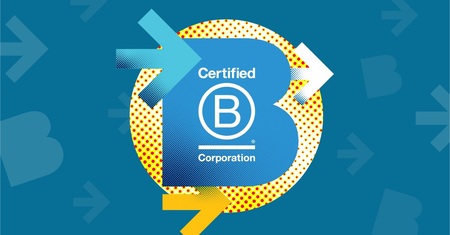
Rather than one specific industry, I would encourage people to look towards those businesses that are applying an alternative model of thinking. Approaching global sustainability challenges with a lens of disrupting the system to generate alternative solutions is key, especially when considering how interconnected the world is. We will not solve sustainability challenges nor make progression without recognising this. So, if you are looking for inspiration, I recommend browsing our B Corp Directory and keeping an eye out for our community members who have earnt Impact Business Models. They measure the ways in which a company is designed to create a specific positive benefit or outcome for one of its stakeholders, such as employee ownership, the circular economy, resource conservation, toxin reduction, supply chain poverty alleviation, and local economic development to name a few.
Which 'green skills' are you looking for in new recruits to take your business to the next level?
I believe a critical 'green skill' that supports business development is the ability of an individual to co-create or identify evolving opportunities for interconnection across sectors, with the aim of expanding discussion, expertise and knowledge beyond the confines of one siloed industry.
Where do you see the next wave of green ideas and leaders coming from?
I hope to see more leaders and green ideas originating from the world of STEM, where those with the complex knowledge of the processes, systems and technologies that drive our current industries and economic system will be championed - through shifting stakeholder governance models - to apply their expertise beyond their own sectors and boundaries, to consider how their innovations could benefit society and the planet.
A great example is the collaborative work of Finisterre, Aquapak, and EP Group; they co-created their Leave No Trace garment bags which are water soluble, ocean safe and biodegradable, breaking down harmlessly to non-toxic biomass in soil and sea. I hope to see more innovative collaborations across supply chains that derive from partnerships focused on tackling environmental and societal issues.
What area or aspect of sustainability do you think isn't getting the attention it deserves?
Balanced transparency and accountability. I'd like to see a move away from the idea - often encouraged by glossy, faultless impact reports - that businesses can be perfect. I'd like to see a new standard of radical transparency, where broader stakeholders are educated about challenges and opportunities for improvement, as well as goals and milestones.
Which sustainable innovation or project are you most proud of?
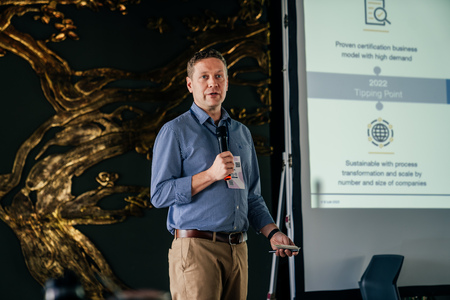
and product delivery at B Lab Global -
Credit: B Lab Global
The B Corp movement! B Lab is the nonprofit network behind the B Corp movement. We've now reached a vital juncture in the evolution of our standards. To achieve B Corp Certification currently, a company has flexibility in how they achieve a verified 80-point score in the B Impact Assessment.
The future standards will see B Corps meet specific performance requirements across social, environmental, and governance impact topics. This shift reflects our belief that in order to play their role in creating an equitable, regenerative, and inclusive economy, businesses must act holistically across all areas of their operations.
January marked the start of the second consultation into the latest draft and I'd encourage anyone who's interested to share their feedback.
Which setback or failure has taught you the most about sustainability?
My greatest learning has been the ability to approach any discussion or project about sustainability with a mindset of empathy and support, with consideration of how you can find points of alignment, despite different perspectives, to focus on a common north star.
Failure to consider the constraints, challenges and place from which each actor in those conversations is joining is the quickest route to failure.
What do you know about sustainability now that you wish someone had told you when you were starting out?
Embrace complexity. Many topics within the field of sustainability challenge both the status quo and are difficult to resolve, as there isn't always a clear answer.
What's the biggest misconception about what you do?
That businesses are perfect if they are a B Corp. The idea behind the B Corp Certification is that we provide a framework through which companies can navigate a positive change across their operations, with the recognition that this process is constantly moving and with no end.
- Do you want to join BusinessGreen 'In the Green Room...' or nominate a colleague to feature in our new series of Q&As? Email [email protected] for more details.





